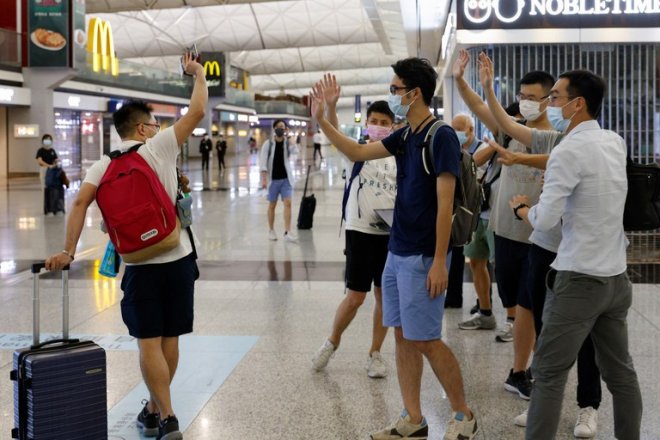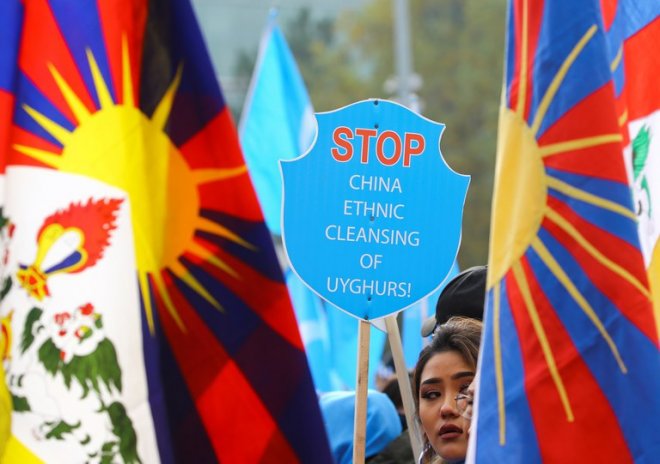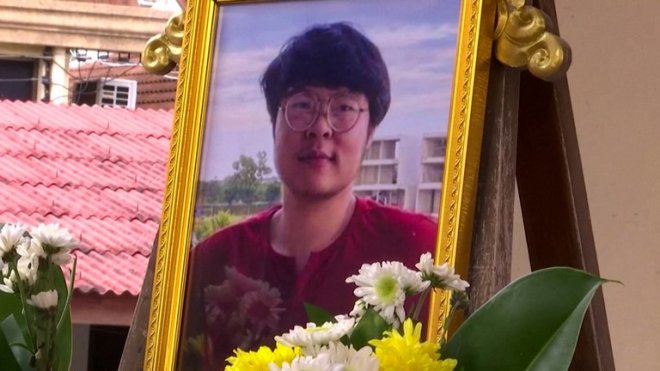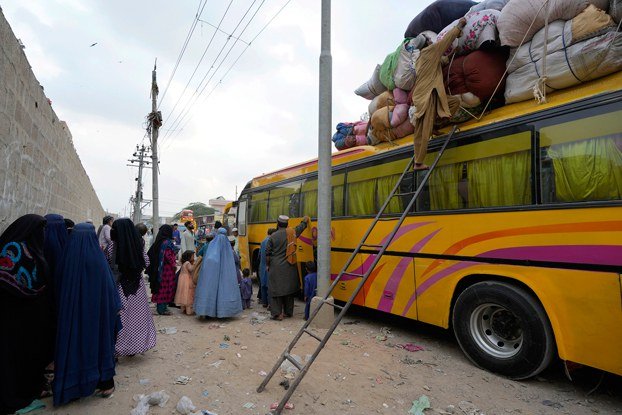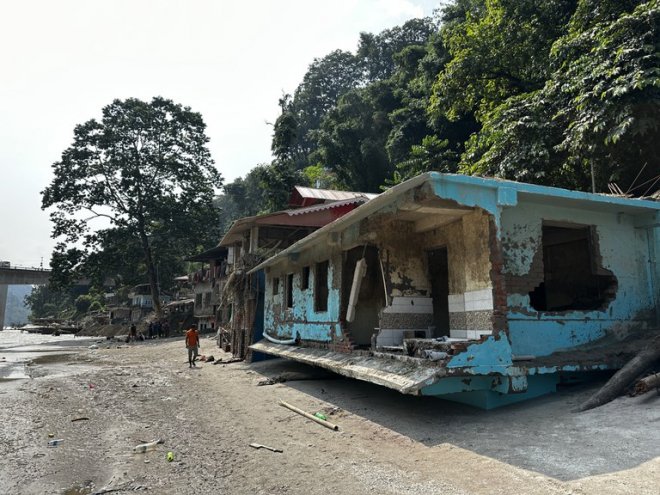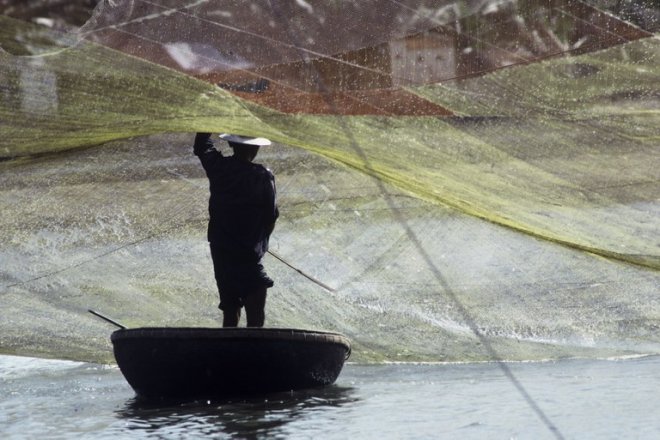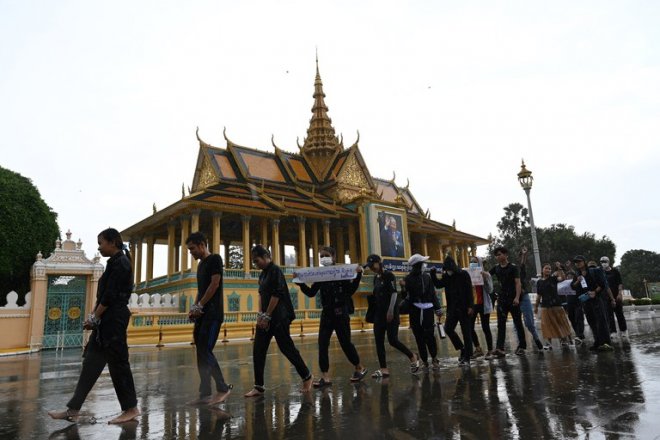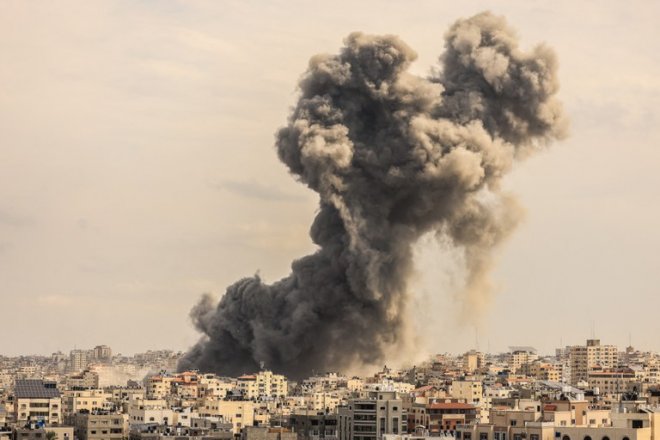Philippines’ Marcos to raise South China Sea dispute during Beijing state visit
Philippine leader Ferdinand Marcos Jr. will raise the South China Sea dispute and assert Manila’s sovereignty over its territorial waters when he meets Chinese President Xi Jinping next week during his first presidential visit to Beijing, officials said Thursday.
Marcos is embarking on the Jan 3-5 state visit weeks after Manila accused Chinese boats of “swarming” in South China Sea waters within the Philippines’ exclusive economic zone.
He will bring up issues “affecting bilateral relations, among them the issue [of the] WPS,” said Neil Imperial, the Philippine assistant foreign secretary for Asian and Pacific Affairs. “WPS” refers to the West Philippine Sea, Manila’s name for territories and waters it claims in the South China Sea.
“The president wants a peaceful and stable situation in the WPS and will continue to uphold our country’s sovereignty and sovereign rights during his meetings with Chinese leaders,” Imperial told reporters in an online press briefing.
The foreign department, however, will not “second guess what the president will say to [his] counterpart,” he said.
In addition, the foreign ministries of both governments are set to sign an agreement “establishing direct communication” to avoid “miscalculation and miscommunication” in the contested sea region, Imperial said. Details of the proposed pact were not immediately available.
The Philippine foreign office said earlier that it had sent 193 diplomatic protests to China this year alone – 65 of those since Marcos assumed the presidency in June.
China claims nearly all of the South China Sea on historical grounds, including waters within the exclusive economic zones of Brunei, Malaysia, the Philippines, Vietnam, and Taiwan. Beijing also claims historic rights to areas of the waterway that overlap Indonesia’s exclusive economic zone as well.
“The president has said that the maritime issues do not define the totality of our bilateral relations with China, but nevertheless, he acknowledges the importance of this issue to our interest and that of the Filipino people,” Imperial said.
For part of the bilateral meeting, at least, both leaders will likely discuss energy cooperation, especially in oil and gas.
The foreign department also said that it expected major Chinese investment pledges during the trip, particularly in the areas of agriculture, renewable energy and nickel processing – China supplies about 70 percent of nickel ore and concentrates to Manila.
Presidents Marcos and Xi have met once before, in Bangkok, on the sidelines of the APEC summit in November.
“With both leaders receiving a fresh mandate in recent elections, there is an expectation that the state visit will set the tone of bilateral ties between the two countries in the next five to six years,” Imperial said.
In September, Marcos met with President Joe Biden in New York on the sidelines of the United Nations General Assembly meeting.
During their meeting, Biden “reaffirmed the United States’ ironclad commitment to the defense of the Philippines.”
Concerns over COVID-19
Meanwhile, Marcos’s appointments office said that the Philippine president’s trip was shortened to three days from the originally scheduled four days over concerns about the surge of a newer, more virulent COVID-19 variant. The Chinese government has assured the Philippine side that all safety protocols and restrictions will be followed, Philippine officials said.
Members of the official delegation who fall ill during the trip would be quarantined and isolated until they recover and are fit to fly home. Marcos as well as some members of his staff had earlier this year been infected, with the president having to be isolated shortly after he took office.
The government has had to scrap planned meetings by Marcos with the significant Filipino expatriate community in Beijing, while those traveling with the president would have to undergo quarantine upon arrival at a special facility.
Earlier on Thursday, Health Undersecretary Maria Rosario Vergeire said the country didn’t see a need to shut down its borders or impose tighter restrictions for Chinese travelers despite the spread of the new COVID-19 variant in China.
“We can’t just have closures, then open it, then close it again,” she said, adding she believed that health protocols already in place were sufficient.
“We are moving forward.”
Jeoffrey Maitem in Davao City, southern Philippines, contributed to this report.
BenarNews is an RFA-affiliated online news service.
[圖擷取自網路,如有疑問請私訊]
Marcos is embarking on the Jan 3-5 state visit weeks after Manila accused Chinese boats of “swarming” in South China Sea waters within the Philippines’ exclusive economic zone.
He will bring up issues “affecting bilateral relations, among them the issue [of the] WPS,” said Neil Imperial, the Philippine assistant foreign secretary for Asian and Pacific Affairs. “WPS” refers to the West Philippine Sea, Manila’s name for territories and waters it claims in the South China Sea.
“The president wants a peaceful and stable situation in the WPS and will continue to uphold our country’s sovereignty and sovereign rights during his meetings with Chinese leaders,” Imperial told reporters in an online press briefing.
The foreign department, however, will not “second guess what the president will say to [his] counterpart,” he said.
In addition, the foreign ministries of both governments are set to sign an agreement “establishing direct communication” to avoid “miscalculation and miscommunication” in the contested sea region, Imperial said. Details of the proposed pact were not immediately available.
The Philippine foreign office said earlier that it had sent 193 diplomatic protests to China this year alone – 65 of those since Marcos assumed the presidency in June.
China claims nearly all of the South China Sea on historical grounds, including waters within the exclusive economic zones of Brunei, Malaysia, the Philippines, Vietnam, and Taiwan. Beijing also claims historic rights to areas of the waterway that overlap Indonesia’s exclusive economic zone as well.
“The president has said that the maritime issues do not define the totality of our bilateral relations with China, but nevertheless, he acknowledges the importance of this issue to our interest and that of the Filipino people,” Imperial said.
For part of the bilateral meeting, at least, both leaders will likely discuss energy cooperation, especially in oil and gas.
The foreign department also said that it expected major Chinese investment pledges during the trip, particularly in the areas of agriculture, renewable energy and nickel processing – China supplies about 70 percent of nickel ore and concentrates to Manila.
Presidents Marcos and Xi have met once before, in Bangkok, on the sidelines of the APEC summit in November.
“With both leaders receiving a fresh mandate in recent elections, there is an expectation that the state visit will set the tone of bilateral ties between the two countries in the next five to six years,” Imperial said.
In September, Marcos met with President Joe Biden in New York on the sidelines of the United Nations General Assembly meeting.
During their meeting, Biden “reaffirmed the United States’ ironclad commitment to the defense of the Philippines.”
Concerns over COVID-19
Meanwhile, Marcos’s appointments office said that the Philippine president’s trip was shortened to three days from the originally scheduled four days over concerns about the surge of a newer, more virulent COVID-19 variant. The Chinese government has assured the Philippine side that all safety protocols and restrictions will be followed, Philippine officials said.
Members of the official delegation who fall ill during the trip would be quarantined and isolated until they recover and are fit to fly home. Marcos as well as some members of his staff had earlier this year been infected, with the president having to be isolated shortly after he took office.
The government has had to scrap planned meetings by Marcos with the significant Filipino expatriate community in Beijing, while those traveling with the president would have to undergo quarantine upon arrival at a special facility.
Earlier on Thursday, Health Undersecretary Maria Rosario Vergeire said the country didn’t see a need to shut down its borders or impose tighter restrictions for Chinese travelers despite the spread of the new COVID-19 variant in China.
“We can’t just have closures, then open it, then close it again,” she said, adding she believed that health protocols already in place were sufficient.
“We are moving forward.”
Jeoffrey Maitem in Davao City, southern Philippines, contributed to this report.
BenarNews is an RFA-affiliated online news service.
[圖擷取自網路,如有疑問請私訊]
|
本篇 |
不想錯過? 請追蹤FB專頁! |
| 喜歡這篇嗎?快分享吧! |
相關文章
AsianNewsCast








